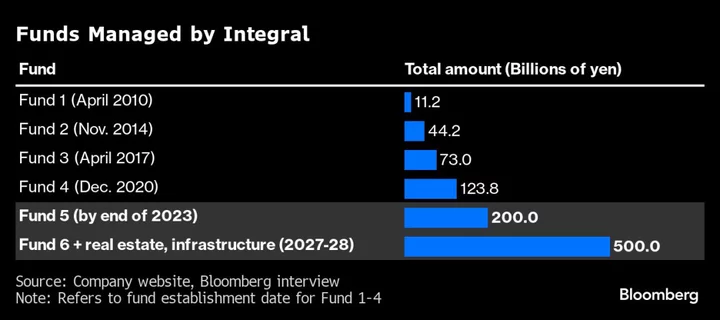Legislation championed by crypto advocates that sets clearer rules for the nascent industry was approved by a key US House panel on Wednesday.
The Republican-led bill was approved by the House Financial Services Committee in a 35-15 vote, mostly along party lines. A handful of Democrats, including Jim Himes of Connecticut and Ritchie Torres of New York, also voted in favor of the legislation and argued the status quo wasn’t working.
Chairman Patrick McHenry of North Carolina touted the legislation and the potential for crypto. “This is a software revolution and a financial revolution if done correctly,” he said.
Clearing that first step is a win for crypto advocates who have said existing rules aren’t clear and are seeking to stymie the US Securities and Exchange Commission, which has ramped up its enforcement against the industry following the collapse of high-profile companies, including FTX.
The House Agriculture Committee, led by Pennsylvania Republican Glenn Thompson, will consider its own portion of the bill Thursday, including $120 million in additional funding for the Commodity Futures Trading Commission, which would get new powers to oversee the asset class under the legislation.
Republicans warned that crypto companies will head overseas without a clear regulatory framework.
Even if the full House votes in favor of the bill, it faces long odds in the Democrat-led Senate, where Banking Chairman Sherrod Brown of Ohio has been a skeptic of the crypto industry.
The legislation would establish rules for when crypto firms must register with the SEC or the CFTC. It lays out a process for digital-asset issuers to certify to the SEC that a blockchain network is sufficiently decentralized, which would allow related tokens to be classified as commodities overseen by the CFTC. The bill would also require the two agencies to engage in joint rulemaking and would mandate studies on issues, including nonfungible tokens and decentralized finance, or “DeFi.”
In addition, the bill includes language to stipulate that a digital asset itself isn’t a security just because it’s sold as part of an investment contract — appearing to conform the legislation to a recent ruling from a federal judge in the SEC’s case against Ripple Labs Inc. Republicans have been hoping that decision will bolster their legislative efforts and show their Democratic colleagues that new laws are necessary.
But the effort still faces pushback, including from SEC Chair Gary Gensler who has said new rules aren’t needed to define when a token is under its jurisdiction and that existing securities laws are clear — crypto firms just refuse to follow them.
Several Democrats on the House Financial Services Committee echoed Gensler’s view and argued the bill would allow crypto to bypass protections in existing securities laws. The top Democrat on the committee, Maxine Waters of California, called the bill “a wish list for Big Crypto,” and other Democrats including crypto opponent Brad Sherman of California suggested Sam Bankman-Fried, the indicted former head of FTX, would be cheering on just such a bill.
“This is going to be a disaster,” said Democrat Stephen Lynch of Massachusetts, who called it was the worst bill he’d seen in his 20 years on the panel.
But bill sponsor French Hill of Arkansas and McHenry said customer protections in the legislation would prevent self-dealing, including diverting assets to affiliates and trading against customers.
Republicans blocked a proposal by Representative Bill Foster of Illinois to require what he called digital “license plates” for every digital wallet. The underlying identity of the owner of the wallet could only be uncovered by a court order. Foster argued this would enable the government to crack down on illicit crypto activity, but Republicans argued such license plates weren’t necessary and would threaten privacy.
Waters and McHenry also said they continue to work together on separate legislation governing stablecoins, with Waters saying they are “very close” to a deal. The committee is scheduled to consider the legislation on Thursday, but a deal may take longer to reach.
Author: Steven T. Dennis and Allyson Versprille









